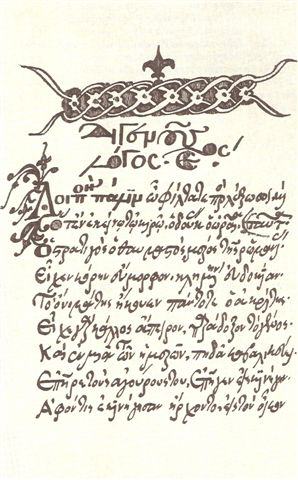The final part of “The Tale of Kutava,” continued from Part V
Having set out from our native shores upon a long and difficult voyage, we survived as best we could. None of us were mariners (although we had gained some experience paddling down the Mikaluf), so we knew only vaguely the course our craft was taking, and we did our best to steer westward. I believe we all had doubts about our chances of arriving at the ancestral home of the Kroats, but we maintained a spirit of optimism throughout. However, by the time we sighted land after many months of roving the seas, we were thoroughly disgusted with our standard diet of fish and gulls, our supplies having run out long before.
Thou canst imagine our joy when we first sighted a stone turret jutting out of the mists, revealing our almost alarming proximity to land. Our leather boat had indeed brought us across the ocean Svôsivik with minimal repairs, and for this we were thankful, yet we thought only of solid ground and the benefits thereof as we paddled into a windless haven.
Disembarking, we secured the boat and examined our surroundings.
‘Troth, this is a dismal place!’ exclaimed Ferondei. ‘It doth not look like our homeland.’
‘When sawest thou the homeland before?’ said Aiĝif. ‘I’ll warrant thee that we are equally clueless in this respect.’ Read More
